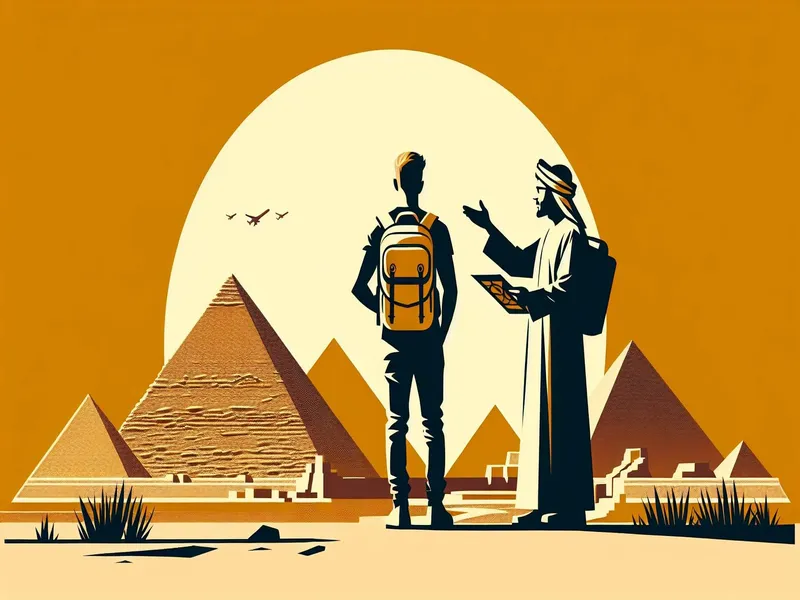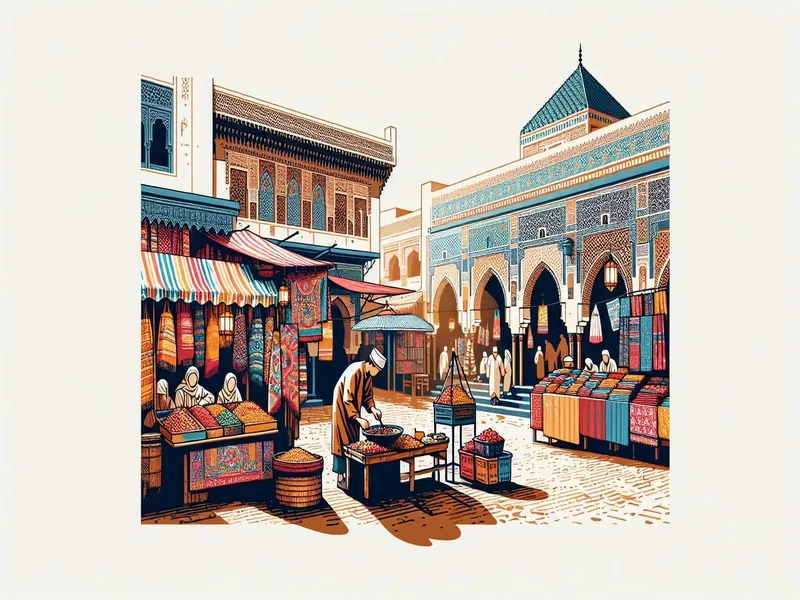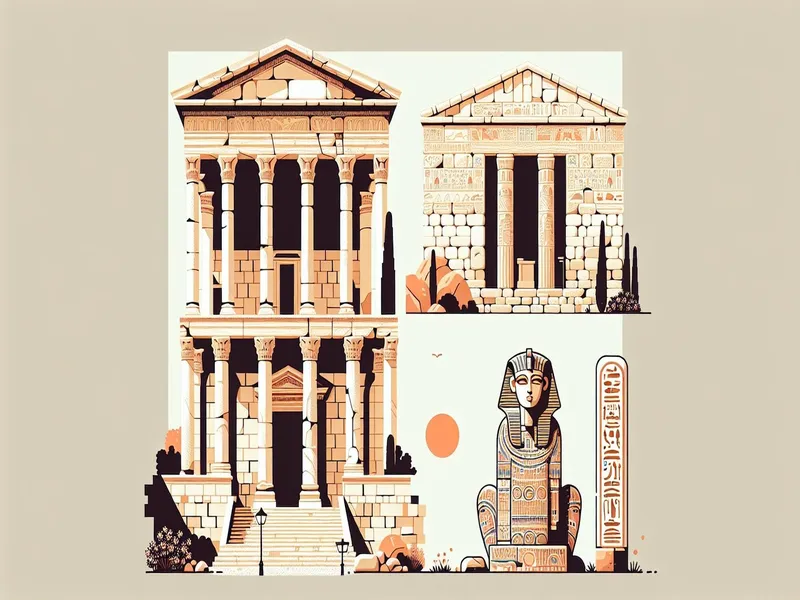
You’re probably seeking an experience that goes beyond typical tourist attractions, diving deep into the rich history and culture of this fascinating region. Whether it’s ancient ruins in Tunisia or bustling markets in Morocco, there’s so much to discover.
Ignoring the opportunity for educational travel means missing out on life-changing experiences. You might end up with just surface-level knowledge and a generic vacation instead of gaining profound insights into North African heritage. This can leave you feeling unfulfilled and disconnected from the places you visit.
I’ve spent years exploring different educational travel opportunities, especially in regions like North Africa. My experience has shown me how transformative it can be to engage deeply with local cultures and histories. Trust me; it’s worth every moment.
Different travelers have varied needs—students may seek academic enrichment while families might look for engaging activities that educate their kids. Tailoring your trip to these needs ensures everyone gets the most out of their journey.
I understand your desire for meaningful travel experiences because I’ve been there too. Let me guide you through making your North African adventure both educational and unforgettable. For more ideas on enriching activities during your travels, check out our detailed guides here.
Overview Of Educational Travel
Educational travel isn’t just about hitting the books; it’s about experiencing the world firsthand. In North Africa, you won’t find better places to jump into history and culture. Imagine walking through ancient ruins where emperors once stood or standing in bustling souks (markets) that have been around for centuries. It’s a real-life classroom!
Why Choose North Africa?
North Africa offers a treasure trove of experiences that you can’t get from a textbook. From Egypt’s Pyramids to Morocco’s Atlas Mountains, every corner has a story.
- Historical Richness: Think of Egypt and its iconic landmarks like the Sphinx and Giza Pyramids.
- Cultural Immersion: Experience Moroccan tea ceremonies or Tunisian pottery-making workshops.
- Geographic Diversity: Explore diverse landscapes—from Sahara deserts to Mediterranean coasts.
Types Of Educational Activities
There are endless ways to learn while having fun:
- Historical Tours
- Visit archaeological sites in Carthage, Tunisia.
- Explore Roman ruins in Algeria’s Timgad.
- Cultural Workshops
- Take cooking classes in Marrakech.
- Join calligraphy sessions in Cairo.
- Language Learning
- Enroll in Arabic courses offered by local institutions.
- Practice French in Algiers’ cafes.
Real-Life Examples
I remember my trip to Fez, Morocco—getting lost in its labyrinthine medina was like stepping back in time. The intricate tile work on every building told stories of artisans who spent decades perfecting their craft. Or take my visit to Alexandria Library—a modern marvel built on ancient wisdom grounds.
Practical Tips For Planning
Here are some tips if you’re considering an educational trip:
- Research Ahead: Know what interests you most—history, art, or nature?
- Local Guides Are Gold: They offer insights you won’t find online.
- Interactive Experiences: Opt for activities where you can participate actively rather than just observe.
Key Destinations In North Africa

Exploring North Africa’s educational travel opportunities is like opening a treasure chest of history, culture, and adventure. Let me take you through some key destinations that offer unique and enriching experiences.
Egypt
Egypt, the land of Pharaohs, has so much more than just pyramids. You can walk in the footsteps of ancient rulers at Giza, marveling at the Great Pyramid and Sphinx. If you’re into museums (and who isn’t?), the Egyptian Museum in Cairo houses an extensive collection of artifacts, including King Tutankhamun’s treasures.
For a hands-on experience, consider joining an archaeological dig or a workshop on hieroglyphics. I once spent an afternoon learning to decipher these ancient symbols—it was like cracking a code! And don’t miss sailing down the Nile on a felucca; it’s not just scenic but also historically significant.
Morocco
Morocco offers a vibrant mix of cultural experiences that will leave you spellbound. Imagine sipping mint tea in Marrakesh’s bustling markets or getting lost in Fez’s labyrinthine medina. I’ve found myself utterly captivated by local artisans demonstrating their crafts—pottery-making workshops are particularly fascinating.
You can dive deeper into Moroccan culture with cooking classes where you’ll learn to make traditional dishes like tagine. Language enthusiasts can pick up some basic Arabic phrases during their stay—it’s a great way to connect with locals! Oh, and don’t forget to visit Chefchaouen, the stunning blue city that looks straight out of a fairy tale.
Tunisia
Tunisia might be smaller than its neighbors but packs a punch when it comes to educational travel. The ruins of Carthage are an absolute must-see for history buffs; walking among these ancient remnants feels like stepping back in time.
The Bardo National Museum in Tunis is another highlight with its impressive collection of Roman mosaics. For something more interactive, try attending one of the many cultural festivals held throughout the year—they often include traditional music performances and craft displays.
When I visited Tunisia, I had the chance to explore El Djem Amphitheater, one of the best-preserved Roman coliseums outside Italy. It was awe-inspiring standing in such an iconic structure imagining gladiatorial contests from centuries past!
These destinations provide rich opportunities for immersive learning experiences that go beyond typical tourist activities. Whether exploring ancient ruins or participating in cultural workshops there’s always something new to discover in North Africa.
Historical And Cultural Sites

Ancient Ruins
North Africa’s ancient ruins are a goldmine for history buffs. Picture this: You’re wandering through the remnants of Carthage in Tunisia, where every stone whispers tales of Roman conquests and centuries-old civilizations. It’s like stepping into a time machine.
In Egypt, the temples of Luxor and Karnak stand as colossal reminders of pharaohs’ grandeur. I’ve walked those paths myself—it’s surreal seeing hieroglyphics up close, almost like reading ancient tweets from millennia ago! Morocco also boasts stunning ruins like Volubilis, an old Roman city with well-preserved mosaics that make you feel you’re part of an art exhibit.
Museums And Galleries
Museums in North Africa offer deep dives into cultural treasures. The Egyptian Museum in Cairo houses thousands of artifacts, including King Tutankhamun’s golden mask—trust me, it’s jaw-dropping in person. When I visited, I spent hours marveling at the intricacies of ancient craftsmanship.
Head to Morocco’s Marrakech Museum to see Islamic architecture fused with contemporary art—a blend that’s both eye-catching and thought-provoking. Tunisia’s Bardo National Museum is another must-visit; its collection spans from prehistory to modern times, offering a panoramic view of the region’s rich heritage. Imagine walking through halls filled with intricate mosaics and sculptures that each tell their own story.
Wherever you go, these museums aren’t just buildings—they’re gateways to understanding cultures deeply rooted in history and tradition.
Learning Opportunities
Exploring North Africa’s educational travel scene? There are countless ways to immerse yourself in the rich cultures and histories of Egypt, Morocco, and Tunisia. Let’s jump into some of the most enriching opportunities.
Language Courses
Learning a new language can be an exciting part of your journey in North Africa. Whether it’s Arabic or Berber, taking a language course allows you to connect more deeply with locals. I remember my first Arabic class in Cairo; our teacher was just as enthusiastic about teaching us cultural nuances as he was about grammar rules.
- Intensive courses: These are great if you’re staying for a short period but want to make the most out of it.
- Conversational classes: Ideal for travelers who wish to learn practical phrases quickly.
- Immersive programs: Perfect for those planning longer stays—they combine classroom lessons with real-world practice.
Workshops And Tours
Workshops and tours offer hands-on learning experiences that textbooks can’t compete with. Picture this: You’re in Marrakech, rolling up your sleeves at a pottery workshop, feeling the clay between your fingers while listening to stories passed down through generations.
- Cooking classes: Jump into local cuisine by learning how to make traditional dishes like Moroccan tagine or Egyptian koshari.
- Historical tours: Guided visits to ancient ruins or historical landmarks provide context you might miss on your own.
- Artisan workshops: From weaving carpets in Tunisia to crafting leather goods in Fez, these sessions let you experience age-old crafts firsthand.
Remember when I got lost wandering through Fez’s medina? It turned into an impromptu history lesson thanks to a friendly shopkeeper who shared tales of his family’s trade. It’s these spontaneous moments that often become the highlights of educational travel.
Practical Tips For Educational Travelers
Planning to dive deep into the rich history and vibrant culture of North Africa? Here are some practical tips to make your educational journey both safe and enriching.
Safety Tips
First off, let’s talk safety. North Africa’s generally safe, but like anywhere, it’s good to stay alert.
- Stay Updated: Check travel advisories from reliable sources like the U.S. Department of State before heading out.
- Blend In: Dress modestly and respect local customs. It helps you fit in and reduces unwanted attention.
- Local Contacts: Keep the contact info for your embassy or consulate handy. Also, get a local SIM card; it’s cheap and ensures you’re always connected.
- Travel Insurance: Always have travel insurance that covers medical emergencies and trip cancellations.
When I wandered through Fez’s medina, having a local guide made me feel secure while exploring those narrow alleyways.
Budgeting And Expenses
Next up is budgeting—crucial for any traveler, especially when you’re aiming for an immersive experience.
- Plan Ahead: Research costs beforehand. Websites like Numbeo give insights into daily expenses like meals and transport.
- Use Local Currency: Exchange some money at authorized centers or use ATMs once you arrive. Avoid exchanging large sums at airports—they often have higher rates.
- Seasonal Deals: Visit during off-peak seasons for lower prices on accommodations and tours.
North Africa can be surprisingly affordable if planned right. I remember getting fantastic deals on pottery classes in Morocco by booking them online ahead of time.
Final Thoughts
Educational travel in North Africa offers more than just sightseeing; it provides a gateway to understanding the profound cultural and historical richness of the region. Immersive experiences like language courses, artisan workshops, and historical tours transform a trip into a journey of discovery.
From my own adventures in places such as Fez’s medina and Morocco’s pottery classes, I’ve seen firsthand how engaging deeply with local customs can be both enlightening and unforgettable. By focusing on educational travel, you’re not only expanding your knowledge but also fostering genuine connections with the people and their heritage.
So whether you’re planning your next family vacation or an educational excursion for students, consider North Africa as your destination. Embrace its vibrant culture, investigate into its storied past, and make memories that go beyond the ordinary.